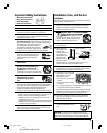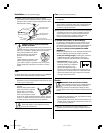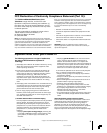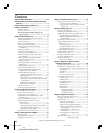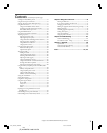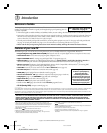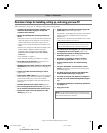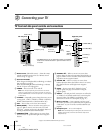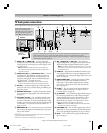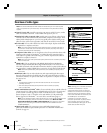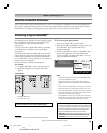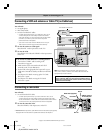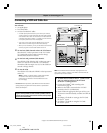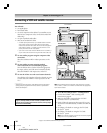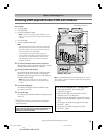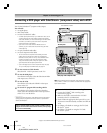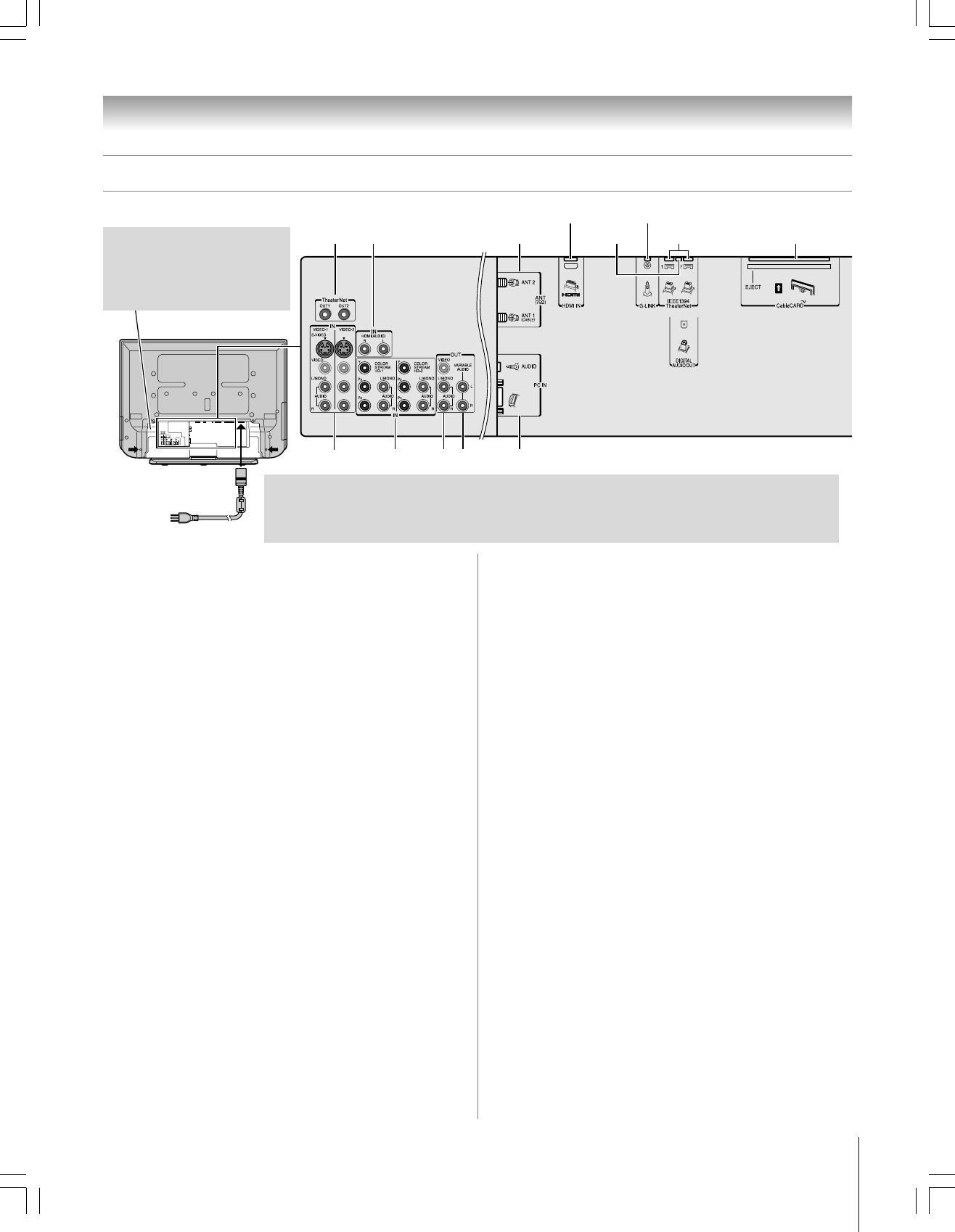
11
Copyright © 2005 TOSHIBA CORPORATION. All rights reserved.
(E) 42/50HP95 *web 213:276
___________
HDMI, the HDMI logo and High-Definition Multimedia Interface are trademarks or
registered trademarks of HDMI Licensing LLC.
CableCARD is a trademark of Cable Television Laboratories, Inc.
TV back panel connections
For an explanation of cable types, see page 12.
1
VIDEO 1 IN
and
VIDEO 2 IN
— Two sets of standard
(composite) video and standard audio inputs plus optional
S-video inputs for connecting devices with composite video
or S-video output.
Note: Standard (composite) video and S-video cables carry
only video information; separate audio cables are required for a
complete connection.
2
ColorStream
®
HD-1
and
ColorStream
®
HD-2
— Two sets
of ColorStream
®
high-definition component video and
standard stereo audio inputs for connecting devices with
component video output, such as a Toshiba DVD player
with ColorStream
®
. See pages 16 and 18.
Note: Component video cables carry only video information;
separate audio cables are required for a complete connection.
3
A/V OUT
— Standard composite video and analog audio
outputs for connecting a VCR for editing and dubbing. See
page 19 for details.
4
VARIABLE AUDIO OUT
— Standard analog audio outputs
for connecting an analog amplifier with external speakers.
See page 21.
5
TheaterNet
™
(IR) OUT
— For controlling infrared remote-
controlled devices through the TV. You can connect up to
two devices with either one of the enclosed IR blaster cables,
and then control the devices using the TV’s IR pass-through
or TheaterNet
™
(on-screen device control) features. See
pages 22 and 47.
6
HDMI AUDIO IN
— For use when connecting a DVI device
with analog audio output to the HDMI input. See page 20.
Also see item 8 below.
7
ANT 1 (CABLE) IN
and
ANT 2 IN
— Two inputs that
support analog (NTSC) and digital (ATSC) off-air antenna
signals and analog and digital (QAM) Cable TV signals.
Note: If you have an antenna only, connect it to ANT 1. If you have
both cable TV and an antenna, connect the cable TV to ANT 1 and
the antenna to ANT 2.
8
HDMI
™
IN
— High-Definition Multimedia Interface input
receives digital audio and uncompressed digital video from
an HDMI device or uncompressed digital video from a DVI
device. See page 20.
9
DIGITAL AUDIO OUT
— Optical audio output in Dolby
Digital or PCM (pulse-code modulation) format for
connecting an external Dolby Digital decoder, amplifier,
A/V receiver, or home theater system with optical audio
input. See page 21.
0
G-LINK
™
— For use with one of the enclosed IR blaster/
G-LINK
™
cables to enable the TV Guide On Screen
™
recording features. See page 26.
!¡
(2) IEEE1394
— Two bi-directional digital IEEE1394 ports
for connecting multiple devices with compressed digital
video. Because these ports are bi-directional, they can be
used for playback and recording. You can control your
IEEE1394 devices using the TV’s TheaterNet on-screen
device control icons. See pages 23–25 and 47.
Note: IEEE1394 cable carries both audio and video information;
separate audio cables are not required.
!™
CableCARD
™
slot
— For use with a digital security card and
digital cable TV service (provided by your local cable operator)
to view encrypted digital programming. See pages 13 and 53.
!£
PC IN
— For use when connecting a personal computer
(PC). See page 27.
Chapter 2: Connecting your TV
5
7
12
4
3
8
6
0
9
!¡
!™
!£
Power cord*
Wall outlet
120V AC 60Hz
TV back
Before connecting the external
device to the TV, remove the
applicable panel cover by squeezing
the tabs in the direction of the
arrow (%) and pulling the cover.
* The power cord supplied with this product is to be used in United States and Canada only. If this product is
used in another country, use a power cord which confirms to the law or regulations of that country.
Do not remove the noise filter from the power cord. The noise filter is to reduce the interference in image or
sound of other electronic equipment.
#01E_010-012_4250HP95 05.9.12, 10:05 PM11
Black



